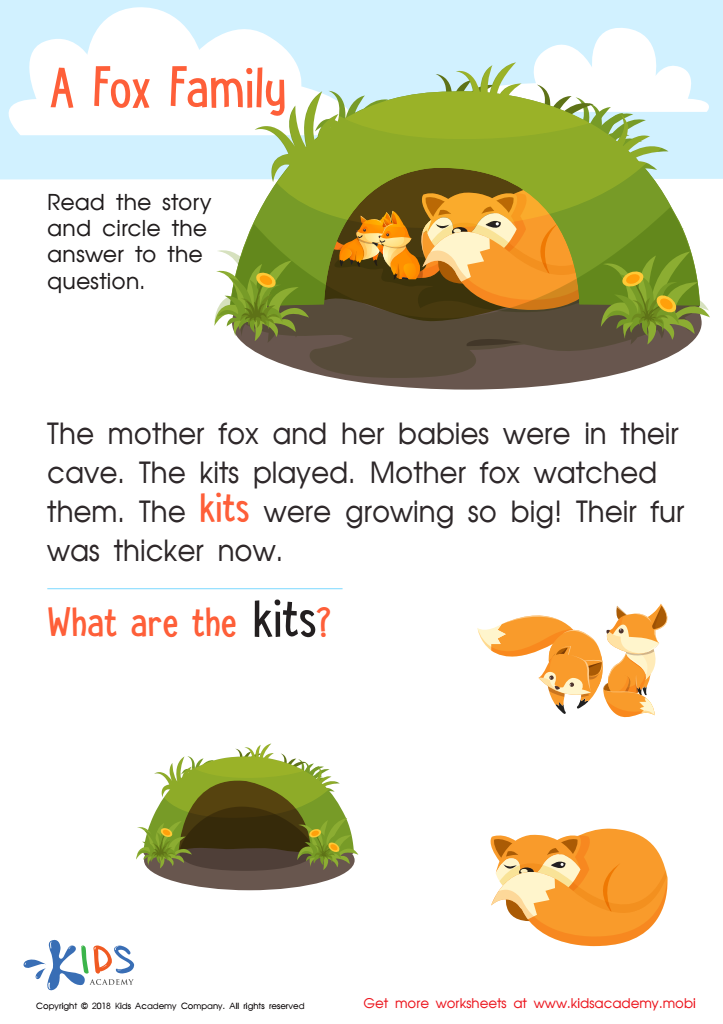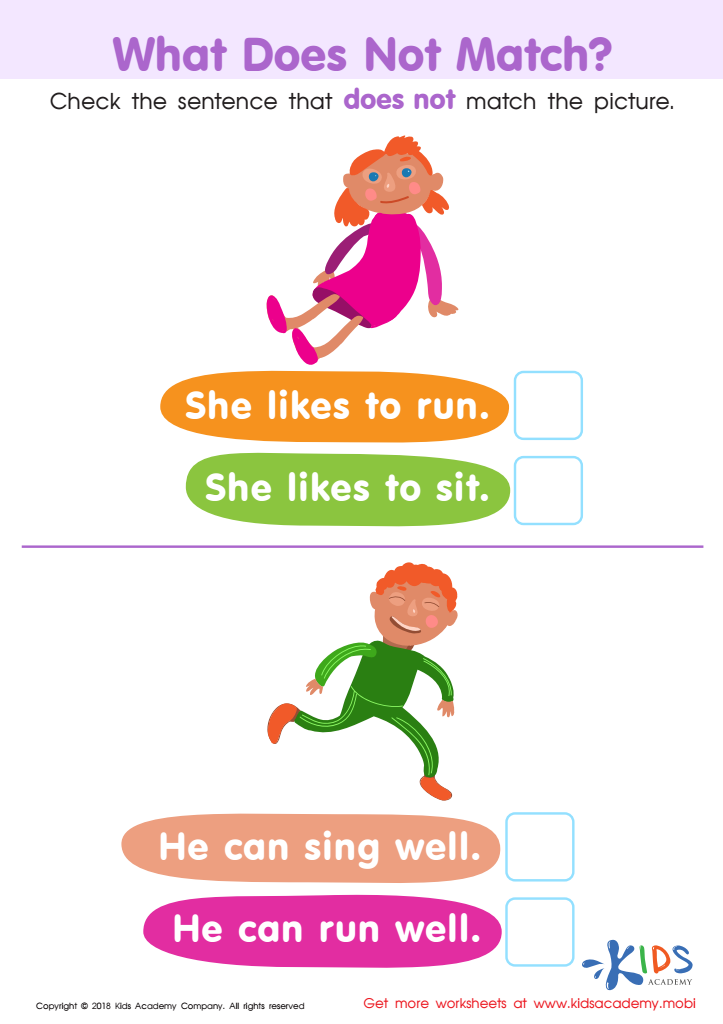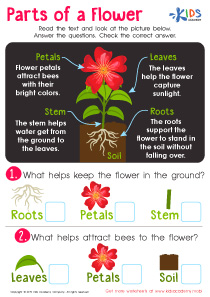Easy Reading Fiction Worksheets for Ages 6-8 - Page 2
26 filtered results
-
From - To


A Fox Family Worksheet


What Does Not Match? Worksheet
Easy Reading Fiction for children ages 6-8 is essential because it lays the foundation for lifelong learning and a love of reading. For parents and teachers, understanding the impact of these books can significantly aid in a child’s development. Firstly, stories geared for this age bracket often use simple language and engaging illustrations, making reading enjoyable and accessible. This is vital because an enjoyable experience can foster a lifelong love of reading.
At this developmental stage, children are transitioning from learning to read to reading to learn. Easy Reading Fiction builds confidence as they see themselves successfully navigating books on their own. This autonomy promotes self-esteem and encourages them to explore more complex literature over time.
Moreover, these stories serve as an excellent tool for enhancing vocabulary and comprehension skills. Encountering new words in context helps children improve their language abilities more effectively than isolated vocabulary drills.
Fiction also provides valuable life lessons. Stories often involve themes like friendship, problem-solving, and empathy, offering young readers frameworks to understand and talk about their own experiences.
Lastly, easy-to-read fiction aids in cognitive development by stimulating imagination and creativity. Encouraging young children to read can simultaneously broaden their mental horizons and deepen their understanding of the world around them. Therefore, the right books can be the stepping stones to a bright academic and emotional future.

 Assign to the classroom
Assign to the classroom












